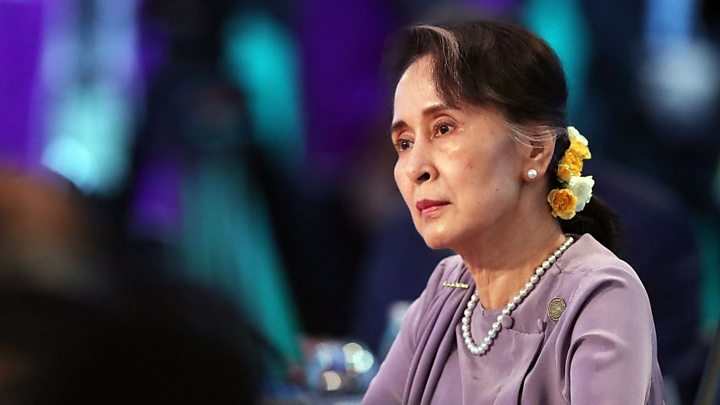
Myanmar's military stages coup; Suu Kyi detained, country under emergency

Myanmar’s military on Monday (February 1) staged a coup, putting State Counsellor Aung San Suu Kyi under house arrest and declaring a state of emergency for a year.
Online news portal Myanmar Now cited unidentified sources about the arrest of Suu Kyi and her party’s chairperson early Monday and did not have further details.
All communications to Naypyitaw appeared to have been cut and Suu Kyi’s National League for Democracy party could not be reached.
Myanmar lawmakers were to gather Monday in the capital Naypyitaw for the first session of Parliament since last year’s election, with tension lingering over recent comments by the military that were widely seen as threatening a coup.
Suu Kyi captured 396 out of 476 seats in the in the combined lower and upper houses of Parliament, far above the 322 needed to secure a majority. But the army-drafted constitution of 2008 grants the military 25 per cent of the total seats, enough to block constitutional changes. Several key ministerial positions are also reserved for military appointees.
The 75-year-old Suu Kyi is by far the country’s most dominant politician, and became the country’s leader after leading a decades-long nonviolent struggle against military rule.
The military, known as the Tatmadaw, charged that there was massive voting fraud in the election, though it has failed to provide proof. The state Union Election Commission last week rejected its allegations.
Amid the bickering over the allegations, the military last Tuesday ramped up political tension when a spokesman at its weekly news conference, responding to a reporter’s question, declined to rule out the possibility of a coup.
Maj. Gen. Zaw Min Tun elaborated by saying the military would follow the laws in accordance with the constitution.
Using similar language, Commander-in-Chief Senior Gen. Min Aung Hlaing told senior officers in a speech Wednesday that the constitution could be revoked if the laws were not being properly enforced. Adding to the concern was the unusual deployment of armored vehicles in the streets of several large cities.
On Saturday, however, the military denied it had threatened a coup, accusing unnamed organizations and media of misrepresenting its position and taking the generals words out of context.
On Sunday, it reiterated its denial, this time blaming unspecified foreign embassies of misinterpreting the military’s position and calling on them not to make unwarranted assumptions about the situation.
US officials at the National Security Council and the State Department said they were aware of the reports but could not confirm a coup and detentions had taken place.

